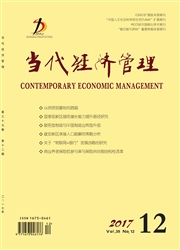

 中文摘要:
中文摘要:
将工作疏离感(work alienation)的影响因素归纳为个体、人际、工作及组织层面四类:个体层面集中体现在人口学变量、个性心理特征;人际层面集中体现在人际关系、领导风格;工作层面集中体现在工作特征、角色压力;组织层面集中体现组织结构以及组织公平。工作疏离感的后果则主要表现为对员工的工作态度(工作投入、组织承诺、工作满意感等)和工作行为(工作绩效、组织公民行为、偏离行为等)的影响,以及对企业的经济绩效和发展绩效的影响。在此基础上,提出工作疏离感的影响因素及后果的整合研究模型。
 英文摘要:
英文摘要:
This article summarizes reasons of work alienation to individual, interpersonal, work and organizational variable. The individual level variables focus on demographic variables and individual psychological characteristics. The interpersonal level variables focus on interpersonal relationship and leadership style. The work level variables focus on job characteristics and role stress. The organizational level variables focus on organization structnre and organizational justice. The consequences of work alienation lie mainly in work attitude (job involvement, organizational commitment, job satisfaction, etc al) , work behavior (job performance, organizational citizenship behavior, deviations, etc al) , and economic and development performance of enterprises. Based on this, the article proposes the integrated reasons and consequences model of work alienation of emlalovees.
 同期刊论文项目
同期刊论文项目
 同项目期刊论文
同项目期刊论文
 期刊信息
期刊信息
